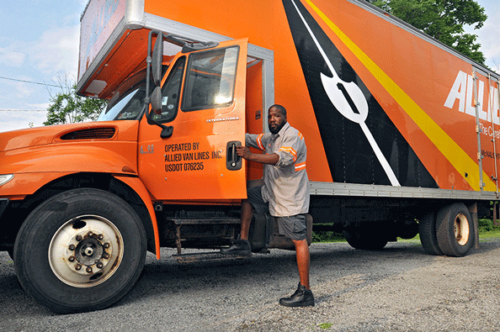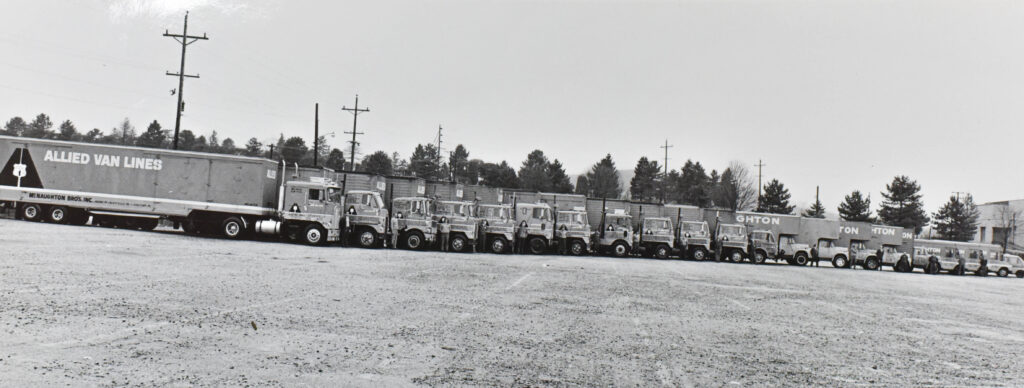Navigating the logistics of a relocation can be a complex endeavor, particularly when faced with a multitude of moving service providers. However, by implementing a strategic selection process, you can confidently choose the ideal partner to ensure a smooth and successful move.
1. Define Your Moving Requirements:
- Move Distance: Accurately determine the distance of your relocation, as this will dictate the type of mover required (local vs. interstate) and significantly impact the associated costs.
- Inventory Assessment: Meticulously estimate the volume of belongings you intend to transport. A comprehensive inventory will aid in acquiring accurate quotes and selecting a mover with the appropriate capacity for your needs.
- Service Requirements: Clearly identify the services you require. Do you desire comprehensive packing and unpacking assistance, or will you handle some tasks yourself? Consider additional services such as furniture disassembly/reassembly or temporary storage solutions if necessary.

2. Initiate a Comprehensive Research and Comparison Process:
- Solicit Multiple Quotes: Obtain detailed quotes from at least 3-5 reputable moving companies. Be transparent about your specific needs (distance, volume, services) to ensure the estimates accurately reflect your relocation requirements.
- Leverage Online Resources: Utilize online platforms like Google Reviews, Yelp, and the Better Business Bureau (BBB) to glean valuable insights from past customer experiences with various moving companies.
- Industry Affiliations: Consider prioritizing companies affiliated with established organizations like the American Moving and Storage Association (AMSA). These affiliations often signify adherence to industry best practices and professional standards.
3. Evaluate Key Criteria When Comparing Moving Companies:
- Licensing and Insurance Verification: For interstate moves, verify the mover’s licensing status with the Federal Motor Carrier Safety Administration (FMCSA). Ensure they possess adequate insurance coverage to protect against potential damage or loss during transit.
- Transparency in Estimates and Pricing: Beware of suspiciously low quotes that may signal hidden fees or unreliable service. Reputable movers provide detailed estimates outlining all associated costs, including packing materials, labor, and potential fuel surcharges.
- Experience and Demonstrated Expertise: Prioritize companies with a proven track record of successfully handling moves similar to yours. Experience with specific challenges (e.g., high-rise buildings, specialty items like pianos) can be invaluable.
- Effective Communication and Responsiveness: Select a mover who is readily accessible, promptly addresses your inquiries, and maintains consistent communication throughout the entire moving process.
- Customer Satisfaction Guarantees: Seek companies that offer guarantees on service quality and damage protection. These guarantees provide peace of mind and demonstrate the mover’s commitment to customer satisfaction.
4. Recognizing Potential Warning Signs:
- Unrealistic Lowball Quotes: If a quote appears too good to be true, it likely is. Exercise caution with movers offering significantly lower prices than competitors.
- High Upfront Deposits: Legitimate moving companies typically do not require substantial deposits upfront. Be wary of companies demanding a large sum before providing services.
- Vague Estimates or Contracts: A reputable mover will provide a detailed estimate outlining the services included, associated costs, and a clearly written contract with well-defined cancellation policies.
5. Additional Recommendations for a Seamless Move:
- Schedule in Advance: Book your movers well in advance, particularly during peak seasons like summer. Early booking helps ensure availability on your preferred moving date.
- Explore Insurance Options: While most movers offer basic liability coverage, consider purchasing additional valuation coverage for high-value items if needed.
- Negotiation Strategies: Once you have received quotes, explore the possibility of negotiating for a more favorable price, especially if you have flexibility with dates or are willing to handle some packing tasks yourself.
- Written Documentation is Essential: Never rely solely on verbal agreements. Ensure you have a signed contract outlining the agreed-upon services, estimated costs, payment schedule, and cancellation policy.
By following these comprehensive guidelines and conducting thorough research, you can confidently select the optimal moving partner who aligns with your specific requirements and budget. This strategic approach will contribute to a stress-free and successful relocation experience, allowing you to focus on the exciting new chapter ahead.
Don’t Get Fooled! Essential Tips to Avoid Moving Scams
Moving can be a stressful experience, and unfortunately, scammers prey on this vulnerability. Here’s a comprehensive guide to help you avoid falling victim to a moving company scam:
Red Flags to Watch Out For:
- Unbelievably Low Quotes: If a moving company offers a significantly lower price than competitors, it’s likely a red flag. Be wary of estimates that seem unrealistic based on the size and distance of your move.
- High Upfront Deposits: Reputable movers typically don’t require large deposits upfront. Be cautious of companies demanding a substantial deposit (especially via cash or money order) before providing services.
- Vague Estimates or Contracts: A legitimate company will provide a detailed estimate outlining the services included, costs, and payment schedule. Avoid movers who offer unclear estimates or contracts with hidden fees or ambiguous language.
- Pressure Tactics: Be wary of companies that pressure you to book immediately or offer limited-time discounts that seem too urgent. Take your time to research and compare options before making a decision.
- Unlicensed or Uninsured Movers: Always verify the company’s licensing through the Federal Motor Carrier Safety Administration (FMCSA) for interstate moves and ensure they have proper insurance coverage for your belongings.

Empowering Yourself: Steps to Protect Yourself:
- Get Multiple Quotes: Don’t settle for the first quote you receive. Obtain estimates from at least 3-5 reputable moving companies to get a competitive price range.
- Check Licensing and Insurance: Verify the company’s FMCSA license (for interstate moves) and inquire about their insurance coverage for your belongings. Ask for a certificate of insurance to confirm details.
- Read Online Reviews and Complaints: Research the company’s reputation through online reviews, customer testimonials, and platforms like the Better Business Bureau (BBB). Look for patterns in complaints to identify potential red flags.
- Ask for References: Request contact information for past clients and reach out to them to hear about their experience with the company.
- Get Everything in Writing: Never rely on verbal agreements. Ensure you have a signed contract outlining the services provided, estimated costs, payment schedule, cancellation policy, and dispute resolution process.
- Don’t Pay Large Deposits Upfront: Reputable movers typically don’t require significant deposits before the move. Be cautious if a company demands a large sum upfront, especially via untraceable methods like cash or money order.
- Use Secure Payment Methods: Avoid paying with cash or money orders. Opt for secure methods like credit cards, which offer some protection in case of scams if you need to dispute charges.
- Know Your Rights: Familiarize yourself with your rights as a mover customer. The Federal Trade Commission (FTC) website offers resources and information on moving scams: https://www.ftc.gov/
Additional Resources:
- Federal Motor Carrier Safety Administration (FMCSA): https://safer.fmcsa.dot.gov/CompanySnapshot.aspx (Provides tools to verify mover licensing)
- Federal Trade Commission (FTC): https://www.ftc.gov/ (Offers information and resources on avoiding moving scams)
- American Moving and Storage Association (AMSA): https://www.moving.org/ (Industry association providing tips and resources for consumers)
By following these essential tips and leveraging the provided resources, you can significantly increase your chances of avoiding moving scams and ensure a safe and secure relocation experience. Remember, a little due diligence goes a long way in protecting your belongings and reducing the stress associated with moving.
